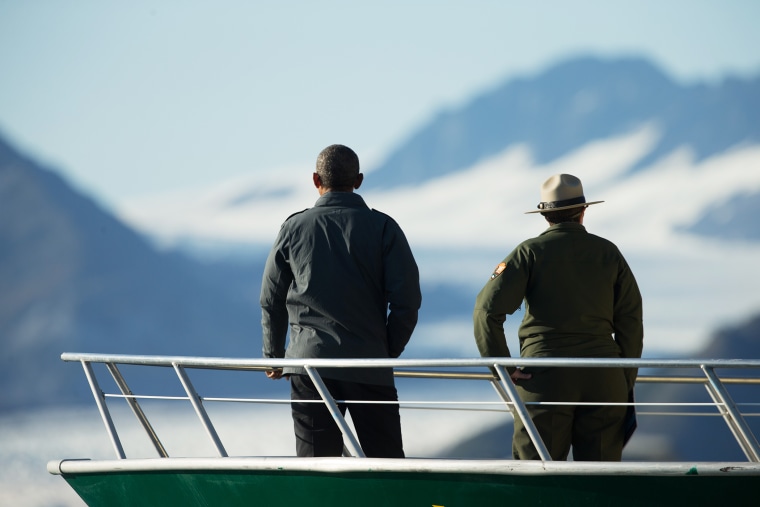The planet is on the edge of catastrophic climate change, a warming of the globe that is already creating a mind-boggling array of human suffering. The United States is leading an international effort to fix the problem, but no nation holds more historical responsibility for creating it.
We’re the top cause of global warming, the all-time leading source of the pollution that traps heat and drives extreme weather. So, as world leaders gather in Paris in hopes of striking a historic deal to curb that pollution, a large and uncomfortable question is bubbling up: Should the United States pay for the climate-related damage it’s already caused -- and will cause in the future?
Dozens of small, low-lying island nations think so, and on Tuesday they made their case to a sympathetic -- but ultimately unmoved President Obama. His administration has fought hard against "loss and damage" payouts, as they're known in the parlance of the United Nations, viewing them as a kind of unlimited liability for bad weather.
But such payouts could be a do-or-die component of the deal in Paris. The island nations show no signs of backing down, and their story is powerful. They're often called “the moral voice” of climate change — because what they face is nothing less than national extinction.
As the globe warms and the ice caps melt, their lands could be partially or entirely submerged, creating millions of refugees in the decades ahead. In remarks after the closed-door meeting, Obama acknowledged the severity of the threat.
“Their populations are among the most vulnerable to the ravages of climate change,” the president said. “Some of their nations could disappear entirely and as weather patterns change, we might deal with tens of millions of climate refugees in the Asia Pacific region.”
He also hinted at the uneasy ethical questions, saying that these nations have "a right to dignity and sense of place.”
But he maintained his administration's opposition to “loss and damage” payments, and held fast against a related demand that the U.S. aim to keep global warming within 1.5 degrees Celsius instead of 2 degrees.
The rift exposes a cruel inequality in the cause-and-effect of climate change. The nations that are most to blame for the problem are also the least equipped to handle the repercussions. It’s as though America started smoking, but Kirabati is the country that got cancer.
And it's not just island nations that are complaining.
Most of the developing world has already demanded that America -- and other rich nations -- pay for sea walls and solar panels and all the costs of mitigating climate change. And the richer nations have already agreed: At the last major climate talks in Copenhagen in 2009, Obama himself brokered a deal to help cover these costs -- a $100 billion annual fund.
In Paris, however, the demands have gone up. Developing nations are asking for money to help prepare for the ravages of climate change, but also compensation for the lost of lands, property and livelihoods that can't be saved.
On Tuesday, after his meeting with island leaders, Obama tried to strike a compromise, announcing a $30 million contribution to insurance programs related to climate losses. But the fight continues.
“We haven't come to any agreement yet,” Kiribati President Anote Tong told ClimateWire on Tuesday. “It's the game of negotiating, but for us it is not a game. It's a matter of survival.”
“I think loss and damage will be complicated,” added U.S. Secretary of State John Kerry in an interview published Tuesday by Rolling Stone. “We're not against it. We're in favor of framing it in a way that doesn't create a legal remedy.”
Republicans in Congress have already promised a fight over the billions that Obama intends to send overseas to battle climate change. “Our constituents are worried that the pledges ... will strengthen foreign economies at the expense of American workers,” dozens of Republican senators wrote in an open letter last month.
But for island nations, the issue is bigger than jobs or economies. As a minister from the Marshall Islands recently put it: “It does not make sense for us to go to Paris and come back with something that says, ‘In a few years’ time, your country is going to be underwater.”
